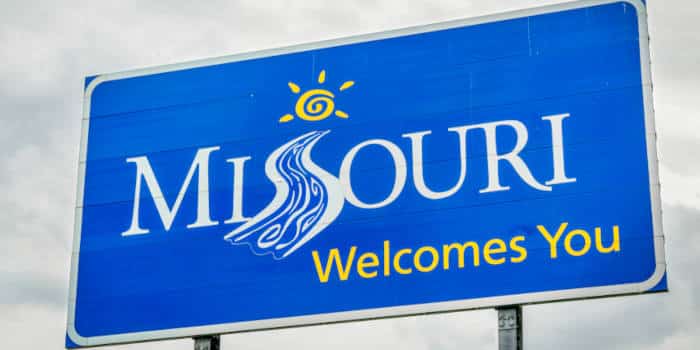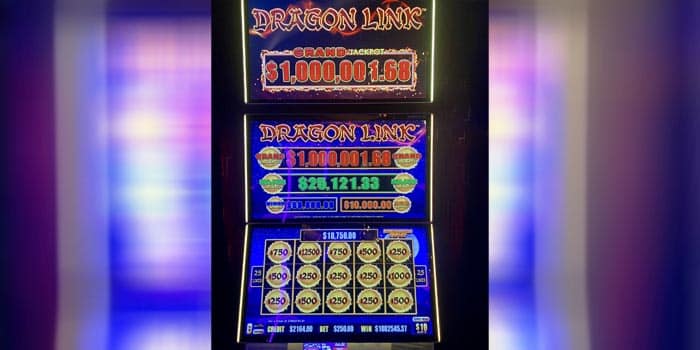- Casino
- By State
- Alabama
- Alaska
- Arizona
- Arkansas
- California
- Colorado
- Connecticut
- Delaware
- Georgia
- Florida
- Hawaii
- Idaho
- Illinois
- Indiana
- Iowa
- Kansas
- Kentucky
- Louisiana
- Maine
- Massachusetts
- Maryland
- Michigan
- Minnesota
- Mississippi
- Missouri
- Montana
- Nebraska
- Nevada
- New Hampshire
- New Jersey
- New Mexico
- New York
- North Carolina
- North Dakota
- Ohio
- Oklahoma
- Oregon
- Pennsylvania
- Rhode Island
- South Carolina
- South Dakota
- Tennessee
- Texas
- Utah
- Vermont
- Virginia
- Washington
- West Virginia
- Wisconsin
- Wyoming
- By State
- Slots
- Poker
- Sports
- Esports
Fact-checked by Angel Hristov
California Gov. Lobbies Against Two Tribal Casino Projects
California’s Democratic governor, Gavin Newsom, has asked the Department of the Interior to oppose the construction of two tribal casinos on claims they would extend the restored lands exception beyond legal limits

California’s Democratic governor, Gavin Newsom, has sent a letter to the US Department of the Interior’s (DOI) secretary Deb Haaland, asking her to oppose two tribal casino projects in Solano and Sonoma counties.
Sidestepping the Indian Gaming Regulatory Act
Newsom argued the new constructions proposed by the Koi Nation of Northern California and the Scotts Valley Band of Pomo Indians at locations that do not belong to their aboriginal homelands would “stretch the ‘restored lands’ exception beyond its legal limits”.
By going forward with the proposals, the Department of the Interior would also be sidestepping the Indian Gaming Regulatory Act and disregarding concerns expressed by tribal governments and other local communities.
In the letter addressing assistant secretary Bryan Newland, the Governor’s Office accused the DOI of failing to consider some reasonable alternatives as possible locations within their Lake County homelands.
“Devastating Impacts” on the Tribes’ Rights and Cultural Resources
One of the supporters of Governor Newsom’s initiative is The Federated Indians of Graton Rancheria, a federally recognized Indian tribe that comprises Coast Miwok and Southern Pomo Indians.
The tribe has expressed its appreciation for the Governor’s desire to protect “tribal sovereignty against Interior’s unexplained rush to move these projects forward while ignoring the concerns of local tribes”, using the voice of chairman Greg Sarris.
Sarris also spoke about their repeated attempts to explain to Interior “that these projects will have devastating impacts to the rights and cultural resources of our Tribe and others in whose ancestral territory these prospective projects are located.”
The chairman added that Haaland will ultimately carry responsibility for the decisions and that she “needs to ensure that Interior is working to protect the interests of all tribes.”
The Yocha Dehe Wintun Nation, which is the operator of Cache Creek Casino, along with the Kletsel Dehe Wintun Nation, and several local government officials have asked the DOI to say no to the Scotts Valley casino project during a press conference in West Sacramento.
Two years ago, the Sonoma County Board of Supervisors also unanimously voted against the tribal casino resort pitched by the Koi Nation.
Opposing voices also came from other regional tribes who accused the two entities behind the casino projects of “reservation shopping”.
The term, deemed offensive by some Native Americans, would suggest the two tribes have looked for land far from their original reservations to boost future casino profits to the maximum.
Pending Approval from the DOI for the $1.3B Projects
The Scotts Valley Band’s proposed $700 million casino resort has been pending approval from the DOI near Vallejo since 2016.
If given the green light, the respective land would be earmarked for the casinos to be taken into trust, enabling the federal government to partially remove land from the state’s jurisdiction and turn it into sovereign land.
The latter is a tribal gaming prerequisite.
Similarly, the Koi Nation’s projected $600 million casino resort near Windsor first came to light toward the end of 2021 and has been awaiting approval ever since.
The DOI may consider the governor’s stance, but without giving him a final say in the decision involving whether the tribes should claim ancestral ties to the land or not.
While both tribes claim they do carry historical ties to the land, other tribes in the area say the opposite.
Earlier in the month, the Tribal Nations Access to Justice Act reached the assembly floor after a 14-0 vote, bringing Californian tribes one step closer to being allowed to sue cardrooms over their offer of blackjack and poker games, which should be exclusive rights of the tribes and their gaming establishments
Related Topics:
After finishing her master's in publishing and writing, Melanie began her career as an online editor for a large gaming blog and has now transitioned over towards the iGaming industry. She helps to ensure that our news pieces are written to the highest standard possible under the guidance of senior management.
More Articles






Industry
July 16, 2025
Iowa Regulator Slams FanDuel with $125K in Fines

Industry
July 16, 2025
Ukraine Wants Real-Time Online Gambling Oversight

Casino
July 16, 2025
MGM China Confirms Jacky Heung Settled Gambling Debt

Casino
July 16, 2025
Strip Casinos End Cross-Property Poker Chip Cash-Ins

Casino
July 16, 2025
WWE Is Coming to Fanatics Online Casinos in the US












